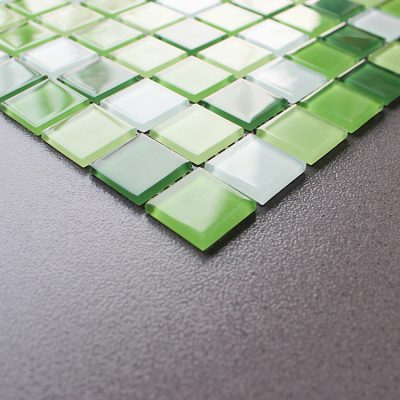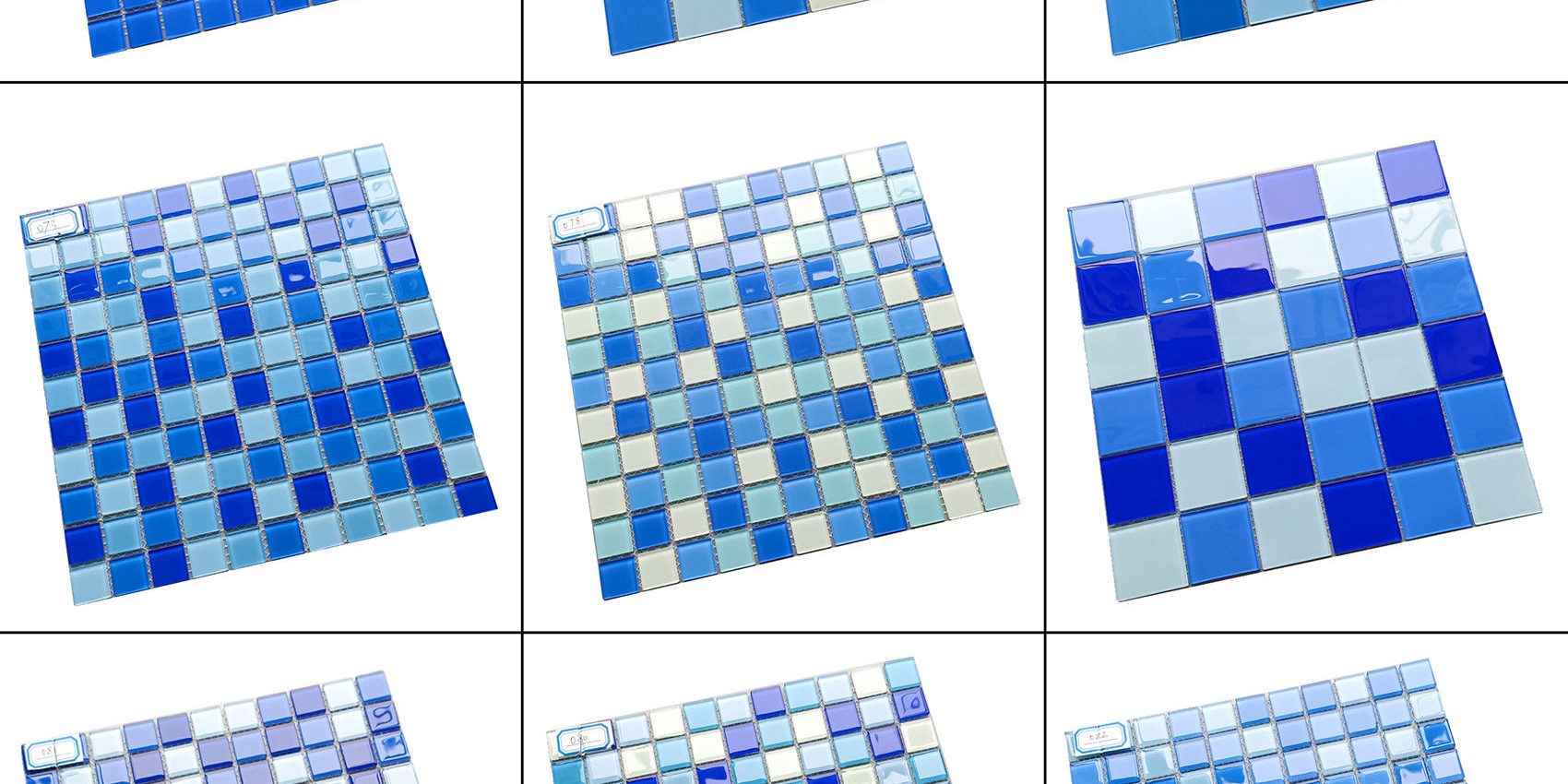Eco-friendly glass mosaic tiles are a sustainable and stylish choice for environmentally conscious consumers. Here are some features and considerations to look for when selecting eco-friendly glass mosaic tiles:
### 1. Recycled Content:
– Choose glass mosaic tiles made from recycled glass materials. These tiles are crafted from post-consumer or post-industrial glass, reducing the need for new raw materials and minimizing waste.
### 2. Manufacturing Process:
– Look for glass mosaic tiles manufactured using eco-friendly processes that prioritize energy efficiency and waste reduction. Some manufacturers use sustainable practices such as water recycling and low-emission kilns to minimize environmental impact.
### 3. VOC-Free:
– Opt for glass mosaic tiles that are free from volatile organic compounds (VOCs). VOCs are harmful chemicals commonly found in paints and adhesives that can off-gas into the air, contributing to indoor air pollution and negative health effects.
### 4. Water-Based Sealants:
– Choose glass mosaic tiles that are sealed with water-based sealants instead of solvent-based ones. Water-based sealants are less toxic and have lower VOC emissions, making them a more environmentally friendly option.
### 5. LEED Certification:
– Look for glass mosaic tiles that are certified by the Leadership in Energy and Environmental Design (LEED) program. LEED-certified products meet strict environmental and sustainability standards, ensuring that they have been responsibly sourced and manufactured.
### 6. Energy Efficiency:
– Consider the energy efficiency of the manufacturing process when selecting glass mosaic tiles. Look for manufacturers that prioritize renewable energy sources and energy-efficient technologies to minimize their carbon footprint.
### 7. Local Sourcing:
– Choose glass mosaic tiles from manufacturers that source materials locally whenever possible. By supporting local businesses, you can reduce transportation emissions and support the local economy.
### 8. Durability and Longevity:
– Select glass mosaic tiles that are durable and long-lasting to minimize the need for frequent replacements. High-quality tiles that withstand wear and tear over time contribute to sustainability by reducing material consumption and waste.
### 9. Certification and Transparency:
– Look for glass mosaic tile manufacturers that provide transparency about their environmental practices and certifications. Seek out products that are certified by reputable third-party organizations such as GreenGuard or Cradle to Cradle.
### 10. Responsible Disposal:
– Consider the end-of-life disposal options for glass mosaic tiles. Choose tiles that can be recycled or repurposed at the end of their lifespan to minimize environmental impact and promote a circular economy.
By considering these features and factors, you can select eco-friendly glass mosaic tiles that align with your sustainability values and contribute to a greener, healthier planet. Whether you’re renovating your home or designing a new space, choosing environmentally responsible materials like eco-friendly glass mosaic tiles is a positive step towards creating a more sustainable future.

















